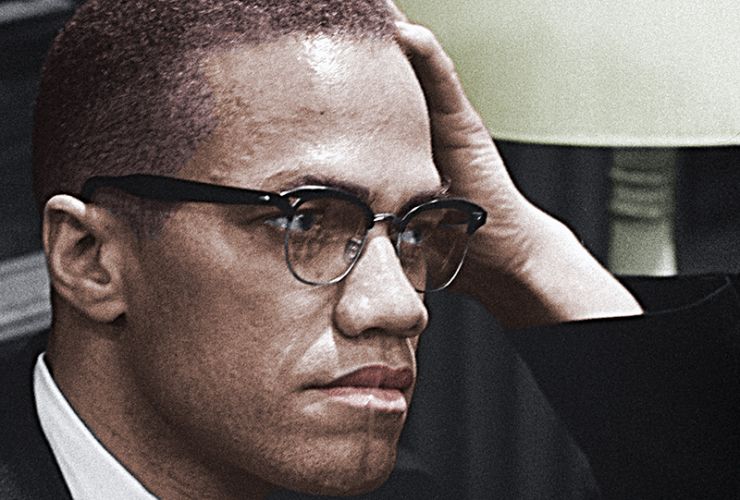
Real heroes are hard to come by. Years after they are gone, we learn, or at least are told about, clay feet, or despicable aspects of their personalities, failures when courage was called for, etc., etc. But not Saint Malcolm. I call him a saint, not in the sense of a holy man who listened to and worshipped only god, but rather as someone who set an example of always striving to improve himself and be all that he preached.
I remember where I was when Malcolm was assassinated on Sunday, February 21, 1965. I suppose any somebody who was a conscious youth or adult, remembers when Malcolm was cut down in a hail of gunfire. I was near unconsolable with grief. I was so sad. Never ever thought about retribution or retaliation, even as contradictory stories ensued about what had really happened.
I was in school at Carleton College, in the little town of Northfield, Minnesota, about an hour or so below the Twin Cities. An older schoolmate’s friend was there when Malcolm was cut down. Later that week she received a letter describing what he witnessed. I had literally been ripping news reports off the teletype machine and preparing them for the news program that directly preceded my jazz radio program. Linda, a fellow student from Little Rock, was sobbing silently. I don’t recall what I played that night. It was not anger that made me taciturn. Sadness. Indescribable sadness. Why can’t we live? Why Malcolm? Why not any fifteen or twenty so-called Negro leaders I could easily shout out?
In a very terrible way, Malcolm’s death prepared me for the trauma of Black existence. Although life is sacred and could even be beautiful, each day could also be hell, even if occasionally heavenly, but eventually and always Black life in White America was a trip through a hell-scape that none of us could escape without encountering some turmoil from so-called friend but especially from foes. We might eventually go through our world but our life journey was never without sustaining some scars.
As I went on my own search for and study of Malcolm, his life story, his political beliefs, his example as a husband and father, I never, ever, forgot nor minimized his defense of Black women, especially the young secretaries who worked for and were sexually abused by the Messenger. Malcolm stood up for them and confronted Elijah about their mistreatment when nobody else would say a mumbling word. Most of the subsequent biographies of Malcolm either overlook or fail to underscore the immense bravery it took for Malcolm to take the stance he took, especially while attempting to negotiate some sort of detente with the Messenger while simultaneously criticizing the messenger’s treatment of women.
If for no other reason, on the anniversary of his assassination, we all should celebrate Malcolm X as a leading feminist who not only defended women but, more importantly, called for their empowerment. He was truly a shinning example as a husband, father of daughters, and protector.
Malcolm, Malcolm, semper (always) Malcolm!
